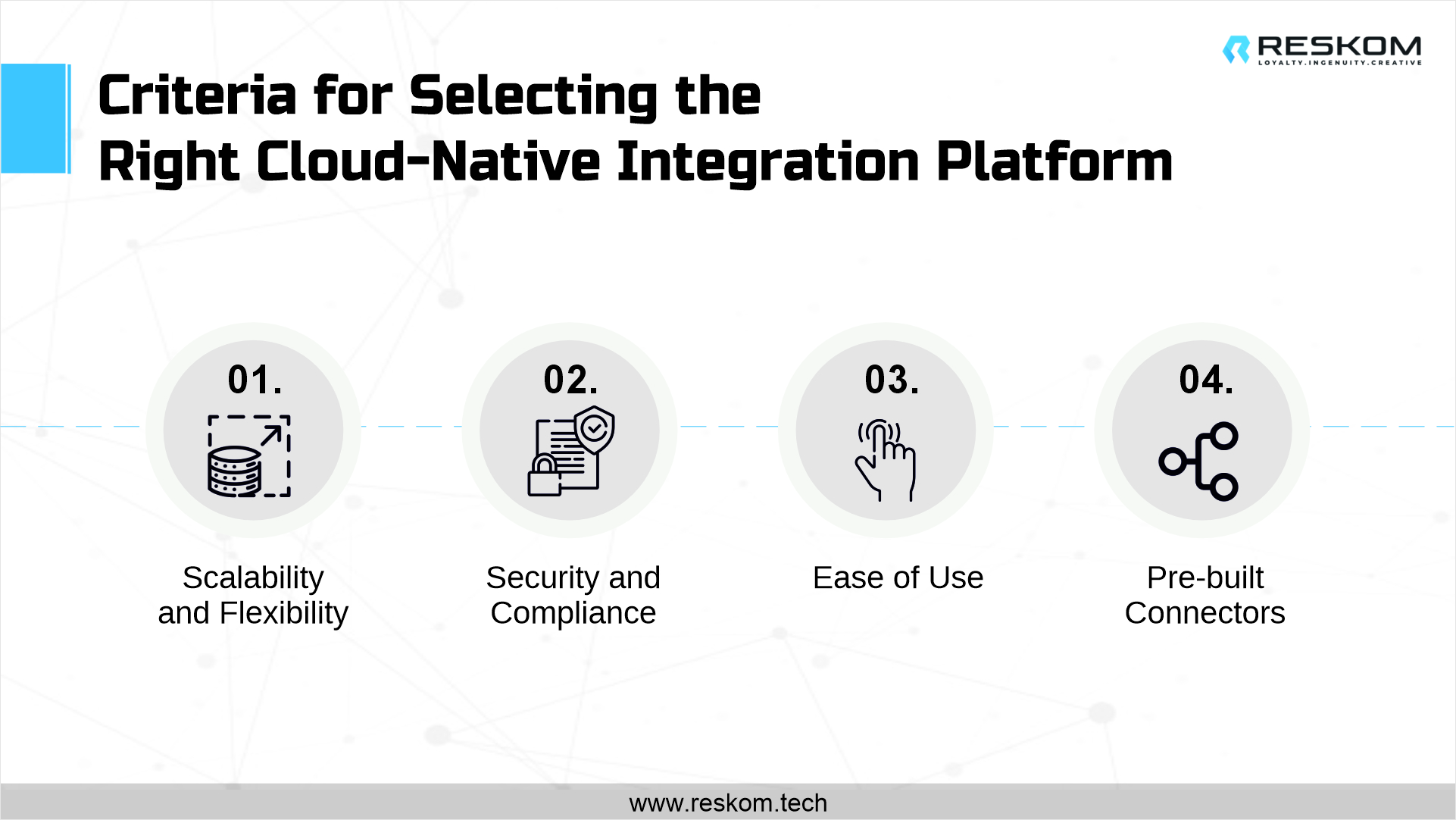Cloud-native integration platforms have risen as powerful catalysts propelling business transformation to new heights. These sophisticated platforms function as bridges, effortlessly connecting a wide array of applications and systems, bestowing upon enterprises the virtues of unparalleled agility, scalability, and operational efficiency. This insightful blog takes a deep dive into the realm of preeminent cloud-native integration platforms, which stand at the forefront of driving profound shifts in the business landscape. As they champion the augmentation of customer experiences and the optimization of internal processes, these platforms wield the potential to redefine the very core of contemporary business operations.
The embrace of cloud-native integration platforms is a strategic response to the dynamic demands of the digital age. They not only foster harmonious interconnections but also empower organizations to navigate complexity with grace, adapt to change swiftly and expand their capabilities seamlessly. They knit together disparate systems and applications.

The Role of Cloud-Native Integration in Business Transformation
Cloud-native integration platforms have emerged as a linchpin for business transformation, enabling organizations to break down silos and foster a holistic approach to data and application connectivity. Traditional integration methods often proved cumbersome, slow, and costly.
Criteria for Selecting the Right Cloud-Native Integration Platform
Selecting the right cloud-native integration platforms is a critical step in the journey toward business transformation. Organizations must consider several key criteria to ensure that the chosen platform aligns with their unique needs and goals:
Scalability and Flexibility: An ideal platform should be capable of scaling seamlessly as business needs evolve. It should accommodate increased data loads and growing application ecosystems without compromising performance.
Security and Compliance: Security is paramount in the digital age. The cloud-native integration platforms should offer robust security features to protect sensitive data and ensure compliance with industry regulations.
Ease of Use: The platform should empower both technical and non-technical users to create, manage, and monitor integrations without requiring extensive coding skills.
Pre-built Connectors: A rich library of pre-built connectors for popular applications and systems accelerates integration development and reduces time-to-value.
Advantages of Cloud-Native Integration Platforms
Cloud-native integration platforms offer a multitude of advantages that contribute to successful business transformation. These advantages not only streamline operations but also foster innovation and growth:
Agility and Scalability: Cloud-native integration platforms are designed to accommodate dynamic business needs. As companies grow or pivot, these platforms can scale seamlessly, adapting to changing data volumes, user demands, and application landscapes.
Faster Time-to-Market: Traditional integration methods often involve lengthy development cycles. Cloud-native integration platforms, however, provide a range of pre-built connectors, templates, and visual tools that accelerate integration development. This reduction in time-to-market allows businesses to seize opportunities promptly.
Cost Efficiency: Cloud-native integration platforms eliminate the need for extensive hardware investments and maintenance. With pay-as-you-go pricing models, businesses can optimize costs by only paying for the resources they use, avoiding upfront capital expenditures.
Innovation Enablement: By removing integration complexities, cloud-native integration platforms free up IT resources to focus on innovation rather than maintenance. This enables businesses to explore new technologies and opportunities that drive competitive differentiation.
Implementation Challenges and Best Practices
While cloud-native integration platforms offer immense benefits, their successful implementation requires careful planning and execution. Several challenges must be navigated:
Change Management: Shifting to a cloud-native integration platforms approach involves organizational change. It’s crucial to ensure that stakeholders across departments understand the benefits and are on board with the new approach.
Data Security: With data flowing across various systems, ensuring security is paramount. Implementing encryption, access controls, and compliance measures is essential to safeguard sensitive information.
Integration Governance: Without proper governance, integrations can become complex and redundant. Establishing integration standards, naming conventions, and monitoring procedures is crucial to maintaining a cohesive ecosystem.
Training and Skill Development: Teams must be adequately trained to leverage the platform’s capabilities effectively. Providing training on both the technical aspects and the platform’s user interface ensures smooth adoption.
Future Trends in Cloud-Native Integration
The landscape of cloud-native integration platforms continues to evolve, and several trends are shaping its future:
Event-Driven Architectures: Cloud-native integration platforms are embracing event-driven architectures, enabling real-time reactions to changing conditions. This trend allows businesses to proactively respond to customer behaviors and market shifts.
Machine Learning Integration: Integration platforms are incorporating machine learning capabilities, enabling them to learn from data flows and predict potential integration issues. This leads to proactive maintenance and optimized performance.
Multi-Cloud and Hybrid Integration: As businesses diversify their cloud strategies, integration platforms are adapting to seamlessly connect applications across multiple cloud providers and on-premises environments.
Serverless Integration: Serverless computing is gaining traction, allowing businesses to focus solely on their code without managing the underlying infrastructure. Integration platforms are embracing serverless models to enhance scalability and efficiency.
Conclusion
In the era of rapid digital advancement, cloud-native integration platforms have emerged as the linchpin of business transformation. Their capacity to seamlessly connect diverse systems, data, and applications fuels agility, scalability, and innovation. As businesses seek to enhance customer experiences, optimize operations, and remain competitive, these platforms offer a robust toolkit.
The advantages of cloud-native integration platforms—agility, scalability, faster time-to-market, and cost efficiency—redefine how organizations approach connectivity. These platforms empower businesses to pivot swiftly, accelerate development cycles, and allocate resources more strategically.
As the landscape evolves, embracing event-driven architectures, machine learning integration and multi-cloud support becomes pivotal. These trends ensure that businesses can proactively respond to market shifts, optimize performance, and seamlessly navigate hybrid environments.
Reskom is a leader in IT solutions, and we can harness the transformative power of cloud-native integration platforms to drive business evolution. By seamlessly connecting applications and systems, Reskom can unlock unparalleled agility and operational efficiency, revolutionizing customer experiences and internal processes. As a visionary in the field, Reskom can select and implement the right platform, considering scalability, security, and real-time capabilities. With Reskom’s expertise, businesses can embrace the advantages of faster time-to-market, cost efficiency, and innovation enablement, staying ahead in the dynamic digital landscape. Reskom’s integration with these platforms ensures future-ready solutions aligned with industry trends.


